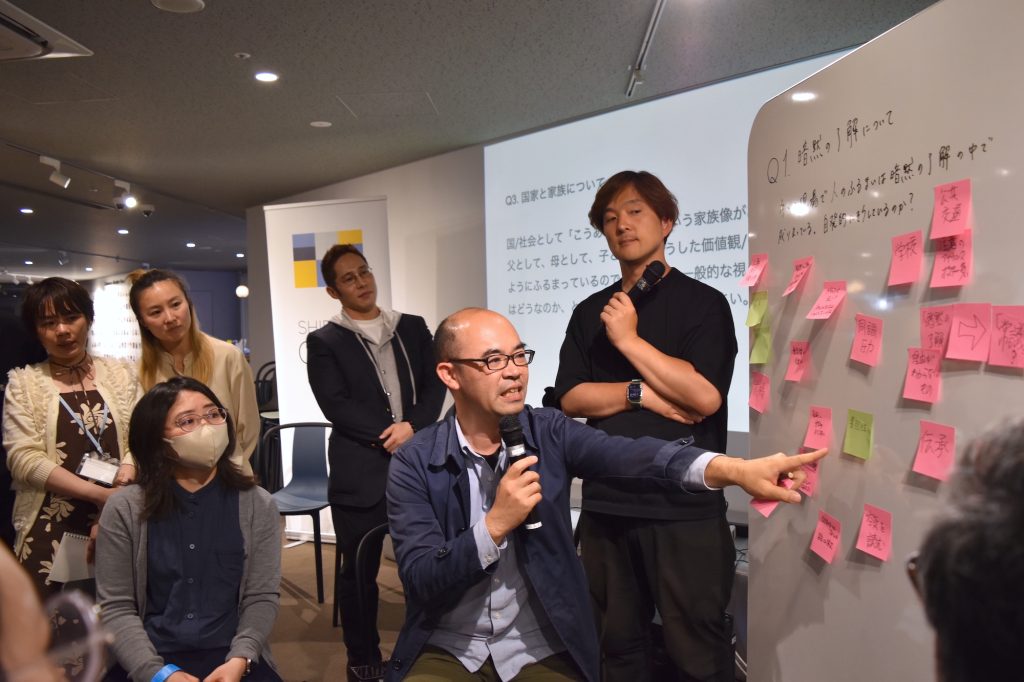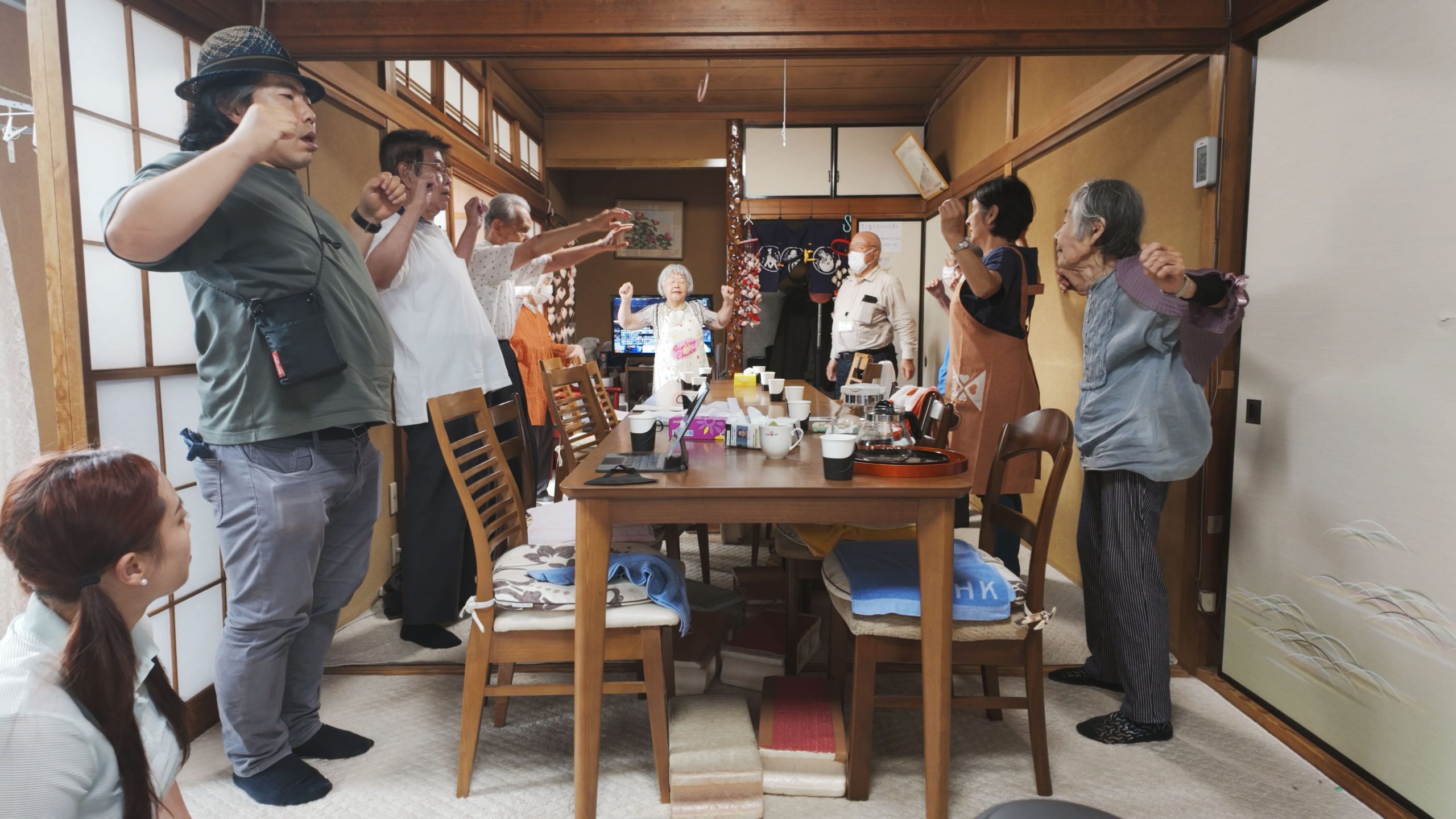
Fieldwork summary in Tokyo
Social order and codes of conduct create behaviours that are appropriate to the situation.
The fieldwork began at 7:30am in Shibuya. Commuters in suits and shirts line up in an orderly manner on the platform and are quietly and uninterruptedly sucked into the train. It was unnaturally quiet on the platform and on the train considering the number of people, as opposed to the bold behaviour of the people in such suits at the bar district of Shimbashi on a Friday evening. We observed the lively exchange of drinks with loud gestures and loud voices which made us wonder why people’s behaviour changes so drastically depending on the situation.
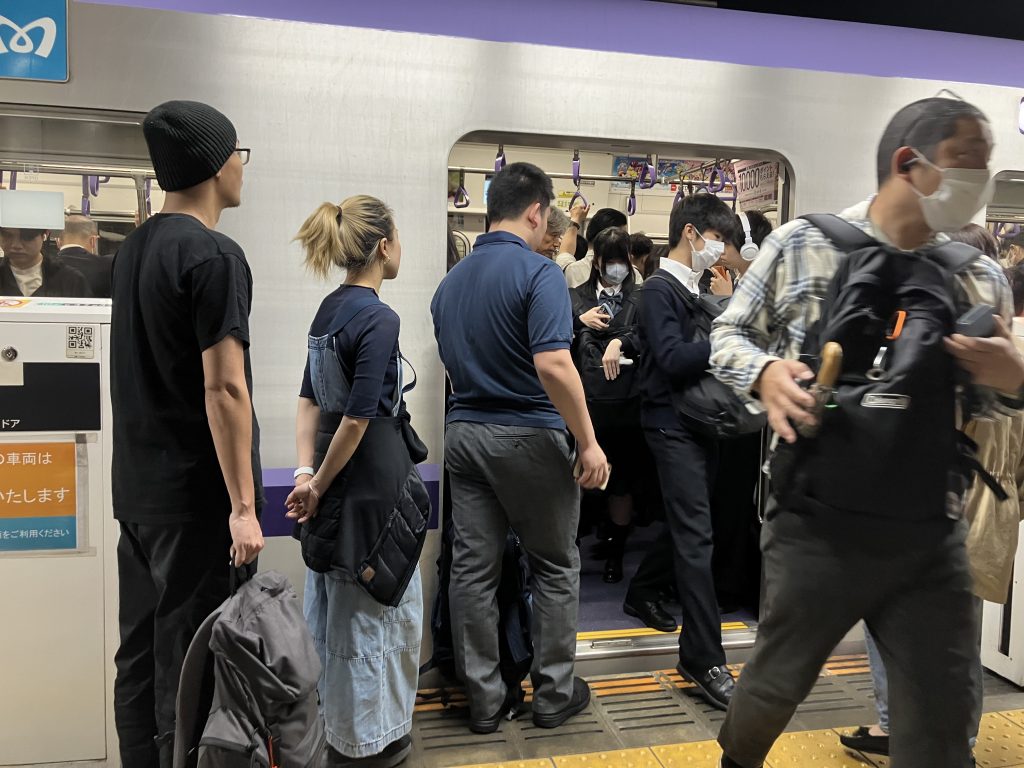
Through an introduction of a school teacher, we visited an elementary school in the suburbs of Tokyo with the two Chinese dancers. As they watched the way teachers speak to school pupils and how each pupil act in groups, the Chinese dancers recalled their childhood experiences at school and talked about how their behaviour was disciplined at school. A visit to Soji-ji Temple, the main temple of the Soto Sect of Buddhism was also a memorable experience with the two Korean dancers to observe the Bon Festival of serving food to the dead (Urabon Sejikie), where memorial services are made to the ancestors and the spirits of all things. Observing a series of rituals in which the monks moved quickly around the temple while reading sutras, we felt that there is an element of well-constructed behaviour in religion.
The observation of behaviour in the residential area seems to have left an impression on both Chinese and Korean dancers. We visited a residential area near Tokyo in Miyamae Ward of Kawasaki City and talked to a group of residents who are developing community gardens in front of the station, as well as visiting care homes and community centres. Compared to being hired as an employee at a company, we felt that the people who were involved in community activities had a stronger will of what they wanted to do. We also had the opportunity to join a family dinner. It was a very stimulating experience to hear the thoughts behind family behaviour, such as how they should behave as fathers and mothers, and how their values have changed compared to the generation above them.
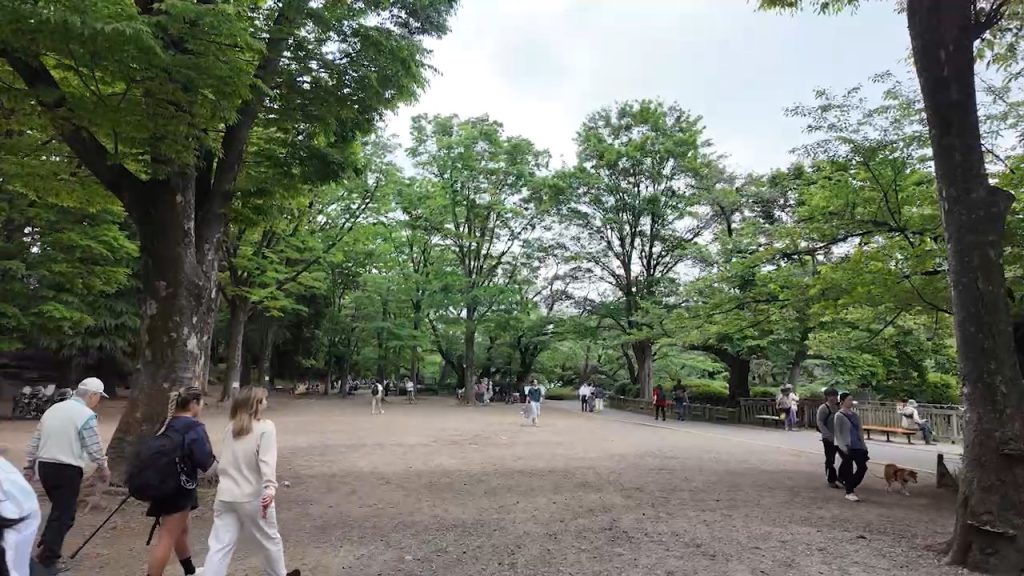
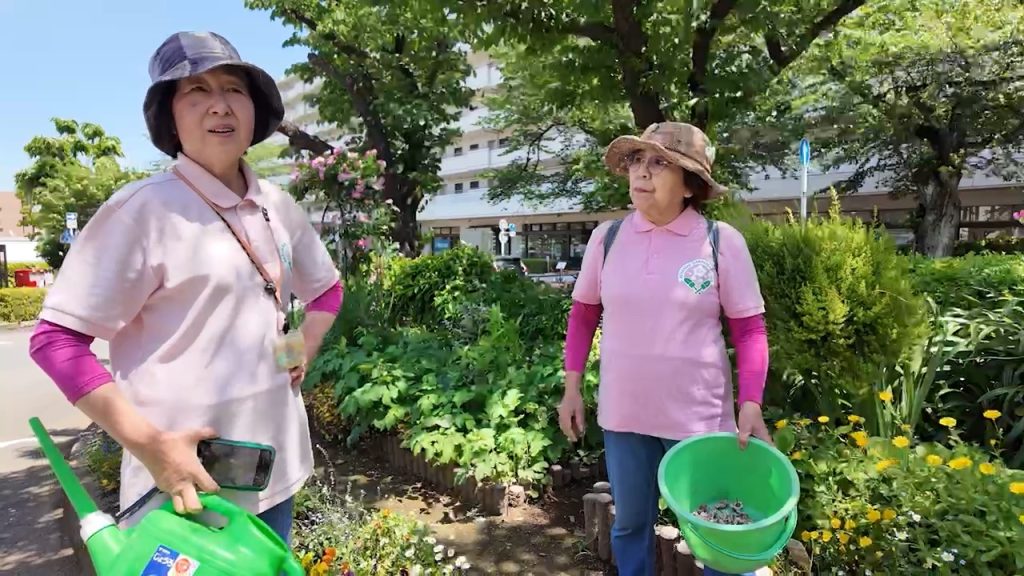
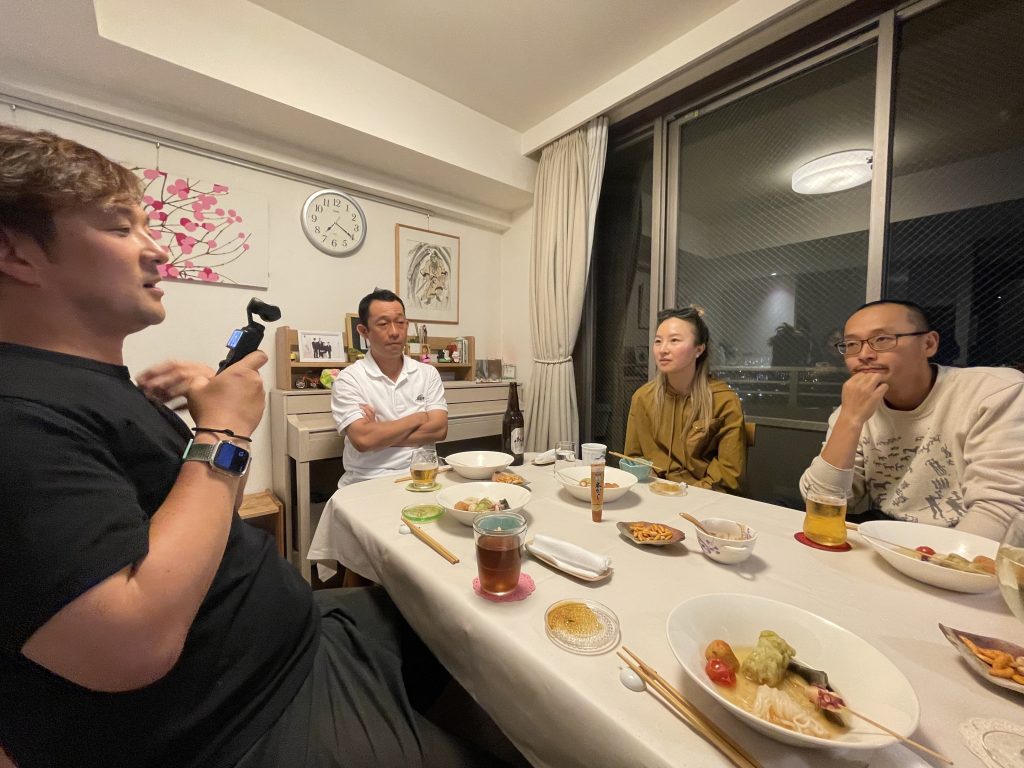
In conjunction with fieldwork by dancers from Japan, China, and Korea, further suggestions were brought forward from the three debriefing sessions and discussions held at Shibuya QWS, an exchange/co-working facility for the Behaviour Project. It was very stimulating to invite historical expert Mitsuishi Kosei, curator Sawa Takashi, and philosopher Yamamori Yuki, who shared their feedback on people’s behaviour we witnessed during the fieldwork. In addition, we gained a variety of perspectives and personal considerations through lively discussions with the event participants which we wouldn’t have discovered ourselves.
